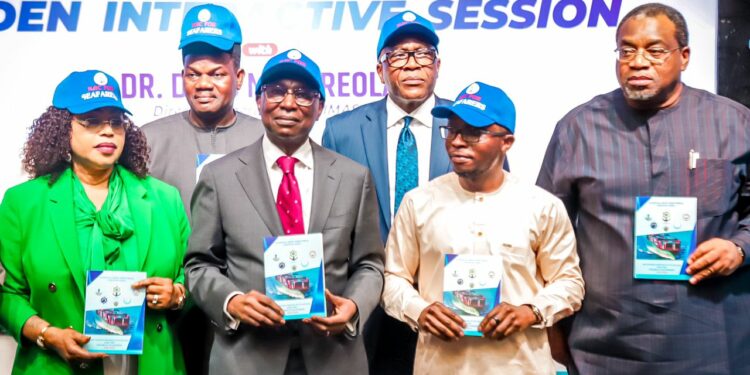The Nigerian Maritime Administration and Safety Agency (NIMASA) has launched the reviewed minimum wage document for Nigerian Seafarers, developed in line with the provisions of the Maritime Labour Convention MLC 2006.
The document, which is for 2023-2025, is a product of a Collective Bargaining Agreement that involved employers of labour in the maritime sector, the leadership of the Maritime Workers Union of Nigeria (MWUN), NIMASA and other stakeholders in the industry.
Speaking at the event, the agency’s director-general, Dr. Dayo Mobereola, stressed the importance of the revised document in enhancing the working conditions of seafarers.
According to him, “Today, we gather to celebrate a significant achievement in our collective efforts to enhance the seafaring industry. I am honoured to present the reviewed minimum standard for the seafaring industry; a landmark document that establishes the benchmark for fair and safe working conditions, decent living wages, and social protection for our seafarers.”
Dr. Mobereola also emphasised the need for collaboration and swift action in finalising the Collective Bargaining Agreement (CBA) among Ship Owners, Nigerian Trawlers Operators, Nigerian Merchant Navy Officers and Water Transport Senior Staff Association (NMNO/WTSSA), and Maritime Workers Union of Nigeria (MWUN) on the renewed minimum standards for the Nigerian seafarers, to prevent payment backlogs and ensure timely compensation for employees.
“The revised standard provides comprehensive framework outlining the terms and conditions of employment for maritime workers, including wages, working hours, health and safety regulations, and other benefits. This reflects the collective expertise and input of stakeholders and our shared commitment to continuous improvement. This effort will contribute to sustaining an equitable and prosperous maritime labour industry,” he stated.
The chairman of the National Seafarers Welfare Board, Alhaji Tijani Ramalan, who launched the document, emphasised the need to adhere to the provisions of the Maritime Labour Convention (MLC) 2006, stating that it will not only foster industrial harmony, but also guarantee better working conditions for Nigerian Seafarers.
The launch event concluded with a call to action for all stakeholders in the maritime industry to collaborate in upholding the minimum standards and building a better future for seafarers, the industry, and the nation.



